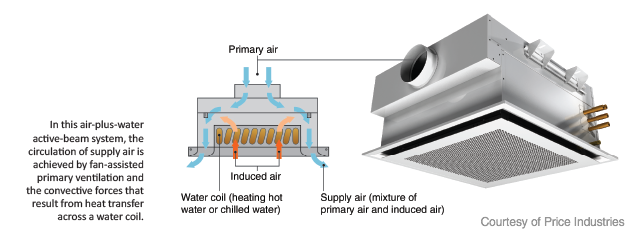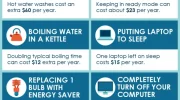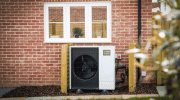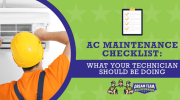
Energy-Efficient HVAC Systems
Are you tired of high heating and cooling bills?
Look no further! Our energy-efficient HVAC systems are the perfect solution for your home or business. With our sustainable technology, you can enjoy efficient heating, ventilation, and air conditioning while saving on energy costs.
Why choose our energy-efficient HVAC systems?
– They are designed with the latest technology to maximize energy savings.
– Our systems provide optimal heating and cooling performance without compromising comfort.
– By using advanced ventilation techniques, our systems promote a healthy and clean environment.
Don’t let your outdated HVAC system drain your wallet. Upgrade to our energy-efficient systems today and start enjoying the benefits of lower energy costs without sacrificing comfort.
Take the first step towards a more sustainable future.
The Benefits of Energy-Efficient HVAC Systems
The advancement of HVAC (Heating, Ventilation, and Air Conditioning) technology has led to the development of efficient systems that offer numerous benefits to both homeowners and businesses. These energy-efficient HVAC systems are designed to reduce energy consumption while providing effective heating, cooling, and ventilation solutions.
Here are some key benefits of energy-efficient HVAC systems:
- Cost Savings: Energy-efficient HVAC systems consume less energy, which leads to significant cost savings on monthly energy bills. By reducing energy consumption, these systems help homeowners and businesses save money in the long run.
- Environmental Sustainability: Energy-efficient HVAC systems are designed to reduce carbon emissions and minimize the environmental impact. By consuming less energy, these systems contribute to a more sustainable and eco-friendly future.
- Improved Indoor Air Quality: Energy-efficient HVAC systems have advanced filtration systems that effectively remove pollutants, allergens, and other harmful particles from indoor air. This helps improve indoor air quality, creating a healthier living and working environment.
- Enhanced Comfort: These systems provide precise temperature control and better humidity management, resulting in enhanced comfort levels. Energy-efficient HVAC systems ensure consistent and optimal heating, cooling, and ventilation throughout the year.
- Longer Lifespan: Energy-efficient HVAC systems are built with high-quality components and advanced technology, increasing their lifespan compared to traditional systems. This helps homeowners and businesses avoid frequent repairs or replacements, saving them additional costs in the long term.
Investing in an energy-efficient HVAC system not only helps to save on energy costs but also contributes to a more sustainable and healthier living environment. Consult with HVAC professionals to explore the wide range of energy-efficient systems available in the market and find the best solution for your heating, cooling, and ventilation needs.
Lower Your Energy Bills
Are you tired of constantly worrying about high energy bills? Our energy-efficient HVAC systems can help you save money while keeping your home comfortable.
Our cooling and heating technology utilizes the latest energy-efficient technology to provide optimal ventilation and temperature control. By investing in our sustainable systems, you can significantly reduce your energy consumption and lower your monthly bills.
Here are some key benefits of our energy-efficient HVAC systems:
- Energy Savings: Our systems are designed to minimize energy waste, resulting in lower energy bills in the long run.
- Cost-Effective: While our systems may require an initial investment, the savings on your energy bills will quickly offset the cost.
- Sustainable: By consuming less energy, our systems help reduce your carbon footprint and contribute to a more sustainable environment.
- Improved Comfort: Our advanced technology ensures efficient cooling and heating, providing you with optimal comfort throughout the year.
Ready to start saving on your energy bills? Contact us today to learn more about our energy-efficient HVAC systems and how they can benefit you.
Boost Your Home’s Value
Upgrade your home’s ventilation and HVAC systems with energy-efficient technology to increase its value and save on energy costs. With efficient cooling and heating systems, you can enjoy a comfortable living environment while consuming less energy.
Energy-efficient HVAC systems use advanced technology to optimize cooling and heating, reducing energy consumption and saving you money on utility bills. These systems are designed to provide long-term cost savings while minimizing environmental impact.
By investing in energy-efficient ventilation and HVAC systems, your home becomes more attractive to potential buyers, increasing its market value. Buyers are increasingly looking for homes with efficient systems to reduce their energy costs and contribute to a sustainable future.
With an energy-efficient HVAC system, you can enjoy benefits such as:
- Lower energy bills
- Improved indoor air quality
- Consistent temperature control
- Reduced carbon footprint
Upgrade your home’s ventilation and HVAC systems today to boost its value and start saving on energy costs. Contact us to learn more about energy-efficient solutions for your home.
Reduce Your Environmental Impact
At Sustainable Energy Solutions, we understand the importance of reducing energy consumption and minimizing our impact on the environment. That’s why we offer innovative heating, ventilation, and cooling systems that are designed to be highly efficient and environmentally friendly.
Our energy-efficient HVAC technology uses advanced algorithms and smart controls to optimize the heating and cooling process, ensuring that energy is not wasted. By reducing energy consumption, our systems not only help you save on energy costs but also contribute to a greener and more sustainable future.
With our sustainable energy solutions, you can enjoy a comfortable indoor environment while minimizing your carbon footprint. Our systems are designed to maximize energy efficiency without compromising on comfort.
Key features of our energy-efficient HVAC systems:
- Smart sensors and controls that adjust temperature and airflow based on occupancy and outdoor conditions
- Highly efficient heat pumps that use renewable energy sources to provide heating and cooling
- Enhanced insulation and sealing to minimize heat loss and air leakage
- Energy recovery ventilation to maintain fresh air circulation without wasting energy
By investing in our energy-efficient HVAC systems, you can not only save money on your energy bills but also make a positive impact on the environment. Join us in creating a more sustainable future for generations to come.
Choosing the Right Energy-Efficient HVAC System
When it comes to cooling and heating, energy efficiency is key. By choosing the right HVAC system, you can not only reduce your energy consumption but also save on your energy costs. Here are some factors to consider when selecting an energy-efficient HVAC system:
- System Type: There are various types of HVAC systems available, such as central air conditioners, heat pumps, and ductless mini-split systems. Each system has its own advantages and efficiency levels. Evaluate your cooling and heating needs to determine which type is the most suitable for your space.
- Cooling and Heating Capacity: Determine the size of the HVAC system you need based on the square footage of your property. An oversized system can lead to inefficiencies and higher energy consumption, while an undersized system may struggle to meet your cooling and heating requirements.
- Energy Efficiency Ratings: Look for HVAC systems with high energy efficiency ratings. The Seasonal Energy Efficiency Ratio (SEER) measures the cooling efficiency of air conditioners, while the Heating Seasonal Performance Factor (HSPF) evaluates the heating efficiency of heat pumps. Opt for systems with higher SEER and HSPF ratings to ensure energy savings.
- Sustainable Technology: Consider HVAC systems that incorporate sustainable technology, such as variable-speed air handlers and inverter-driven compressors. These technologies allow the system to adjust its cooling and heating output according to the specific needs, resulting in energy savings.
- Ventilation: Proper ventilation is crucial for maintaining indoor air quality and reducing energy consumption. Look for HVAC systems that include efficient ventilation options, such as energy recovery ventilators or heat recovery ventilators.
- Maintenance and Service: Regular maintenance is essential for keeping your HVAC system operating at peak efficiency. Choose a provider that offers maintenance contracts and prompt service to ensure that your HVAC system continues to save energy and perform optimally.
By considering these factors, you can choose an energy-efficient HVAC system that not only meets your cooling and heating needs but also helps you save on energy costs in the long run. Make the sustainable choice for your property today!
Consider Your Home’s Size
When it comes to choosing the right HVAC system for your home, size matters. The size and layout of your home will directly impact the efficiency and effectiveness of your HVAC cooling, heating, and ventilation systems.
For a sustainable and energy-efficient solution, it is important to properly size your HVAC system to meet the unique needs of your home. A system that is too large will waste energy and lead to higher utility bills, while a system that is too small will struggle to adequately heat or cool your home.
Before purchasing a new HVAC system, you should consider factors such as the square footage, ceiling height, insulation level, and number of rooms in your home. This information will help you determine the appropriate cooling and heating capacity required for optimal performance.
Consulting with an HVAC professional is recommended to ensure accurate sizing and system selection. They will be able to assess your home’s specific needs and recommend energy-efficient systems that will save you on energy costs in the long run.
Look for Energy Star Ratings
When shopping for HVAC systems, it is important to look for Energy Star ratings. Energy Star is a program developed by the U.S. Environmental Protection Agency (EPA) and the U.S. Department of Energy (DOE) that certifies energy-efficient products. Choosing an HVAC system with an Energy Star rating can help reduce energy consumption and lower energy costs.
Energy Star ratings are given to products that meet or exceed strict energy efficiency guidelines set by the EPA. When an HVAC system has an Energy Star rating, it means that it has been tested and proven to use less energy than standard systems, without sacrificing performance.
By choosing an HVAC system with an Energy Star rating, you can benefit in several ways:
- You can save money on your energy bills. Energy-efficient HVAC systems use less energy, which can result in significant cost savings over time.
- You can reduce your environmental impact. Energy-efficient HVAC systems help to lower greenhouse gas emissions and reduce the demand for energy production, making them more sustainable for the planet.
- You can improve indoor comfort. Energy-efficient HVAC systems are designed to provide consistent and reliable heating, cooling, and ventilation, ensuring a comfortable indoor environment.
When comparing different HVAC systems, be sure to look for the Energy Star label and check the system’s energy efficiency ratio (EER) or seasonal energy efficiency ratio (SEER). These ratings indicate how efficiently the system uses energy, with higher values being more energy-efficient.
In conclusion, when it comes to HVAC systems, choosing one with an Energy Star rating is a smart and sustainable choice. Look for the Energy Star label and enjoy the benefits of energy savings, reduced environmental impact, and improved indoor comfort.
Consider the Seasonal Energy Efficiency Ratio (SEER)
When it comes to energy-efficient HVAC systems, one important metric to consider is the Seasonal Energy Efficiency Ratio (SEER). This ratio measures the cooling efficiency of an air conditioner or heat pump over a typical cooling season.
The higher the SEER rating, the more energy-efficient the system is. Choosing an HVAC system with a high SEER rating can help reduce energy consumption, lower utility bills, and promote a more sustainable environment.
When selecting an HVAC system, keep the following points in mind:
- Cost savings: An energy-efficient HVAC system with a high SEER rating can save you significant amounts of money on your energy bills.
- Comfort: Energy-efficient systems not only save energy but also provide better performance and comfort with improved temperature control and ventilation.
- Environmental impact: By choosing an energy-efficient HVAC system, you contribute to reducing greenhouse gas emissions and promoting a greener, more sustainable future.
It is recommended to consult with a professional HVAC technician who can evaluate your specific needs and provide you with options that align with your budget and energy efficiency goals.
In summary, considering the Seasonal Energy Efficiency Ratio (SEER) when selecting an HVAC system can lead to significant energy savings, improved comfort, and a reduced environmental impact. Make the choice for energy-efficient and sustainable heating and cooling systems!

Energy-Saving Tips for HVAC Systems
Are you tired of high energy bills due to your inefficient HVAC system? Here are some energy-saving tips to help you reduce your cooling and heating costs:
- Regular Maintenance: Schedule regular maintenance for your HVAC system to ensure it operates efficiently. This includes cleaning or replacing air filters, checking ductwork for leaks, and tuning up the system.
- Programmable Thermostat: Install a programmable thermostat to optimize your HVAC system’s energy usage. Set it to adjust the temperature when you’re away from home or asleep to save on cooling and heating expenses.
- Zoning: Consider implementing a zoning system for your HVAC system. This allows you to control the temperature in different areas of your home, saving energy by only cooling or heating occupied spaces.
- Insulation: Improve the insulation in your home to prevent heat transfer. Proper insulation keeps your home cooler in the summer and warmer in the winter, reducing the workload on your HVAC system.
- Natural Ventilation: Take advantage of natural ventilation when the weather allows. Open windows and doors to let in fresh air and cool your home without relying solely on your HVAC system.
- Upgrade to Energy-Efficient Technology: Consider upgrading your HVAC system to a more energy-efficient model. Look for systems with high SEER (Seasonal Energy Efficiency Ratio) ratings for cooling and AFUE (Annual Fuel Utilization Efficiency) ratings for heating.
By implementing these energy-saving tips, you can make your HVAC system more sustainable and reduce your energy costs. Start saving today!
Programmable Thermostats
Programmable thermostats are a key technology in energy-efficient HVAC systems. These innovative devices allow homeowners to easily control the heating and cooling of their homes, resulting in significant energy savings.
With programmable thermostats, you can set specific temperature levels for different times of the day, allowing your HVAC system to operate more efficiently. For example, you can program your thermostat to lower the temperature during the night when you are sleeping, and raise it before you wake up in the morning. This prevents unnecessary energy usage while still ensuring your comfort.
By using programmable thermostats, you can reduce your heating and cooling costs by up to 10% annually. This makes them a sustainable choice for homeowners who are looking to save on energy bills and reduce their carbon footprint.
Not only do programmable thermostats save energy, but they also offer convenience and flexibility. Some models allow you to control your HVAC system remotely through a smartphone app, so you can adjust the temperature of your home even when you’re away. This feature is especially helpful for those who have unpredictable schedules or frequently travel.
When considering programmable thermostats, look for models that are ENERGY STAR certified. These thermostats meet high standards for energy efficiency and performance, ensuring that you get the most out of your investment.
The Benefits of Programmable Thermostats:
- Significant energy savings
- Increased comfort and convenience
- Flexibility to adjust temperature settings based on your schedule
- Reduced carbon footprint
Conclusion
Programmable thermostats offer a sustainable and cost-effective solution for controlling your heating and cooling systems. With their advanced technology and energy-saving features, they are a valuable addition to any HVAC system. Take advantage of programmable thermostats to save on energy costs and make your home more comfortable.
Regular Maintenance
Regular maintenance is crucial for keeping energy-efficient HVAC systems operating at peak performance. By scheduling routine check-ups and tune-ups, you can ensure that your cooling, heating, and ventilation systems are running efficiently and effectively.
During a maintenance visit, professionals will inspect and clean your HVAC systems, checking for any potential issues or inefficiencies. They will also replace filters, lubricate moving parts, and test the performance of the system.
Regular maintenance not only improves energy efficiency but also extends the lifespan of your HVAC system. By keeping your system well-maintained, you can avoid costly repairs and replacements down the line.
With advancements in technology, HVAC systems have become more efficient and sustainable. Regular maintenance allows you to take full advantage of these benefits, keeping your home comfortable while reducing your energy costs and carbon footprint.
Don’t underestimate the importance of regular maintenance for your energy-efficient HVAC system. Schedule routine check-ups today to ensure optimal performance and maximum energy savings.
Proper Insulation
One of the key factors in achieving an energy-efficient HVAC system is proper insulation. Insulation helps in maintaining the desired temperatures by reducing heat transfer and air leakage. It creates a barrier between the inside and outside of a building, keeping the heat in during the winter and out during the summer.
Proper insulation in your HVAC system can help you save on energy costs by reducing the load on your cooling and heating equipment. It ensures that conditioned air remains inside your building, allowing your HVAC system to work more efficiently and effectively.
Here are some benefits of installing proper insulation:
- Energy Savings: Insulation prevents heat loss or gain, reducing the need for your HVAC system to work harder. This results in lower energy consumption and, ultimately, reduced energy costs.
- Improved Comfort: Proper insulation keeps the temperature more stable inside your building, ensuring a comfortable living or working environment.
- Noise Reduction: Insulation helps in reducing noise transmission through walls, floors, and ceilings, creating a quieter and more peaceful indoor environment.
- Environmental Sustainability: Sustainable insulation materials, such as cellulose and recycled fiberglass, can contribute to a greener and more eco-friendly HVAC system.
- Longer HVAC System Lifespan: With proper insulation, your HVAC system doesn’t have to work as hard to maintain the desired temperature, reducing wear and tear and extending its lifespan.
Investing in proper insulation for your HVAC system is a smart choice that can lead to significant energy savings, improved comfort, and a more sustainable living or working environment. Consult with HVAC professionals to determine the best insulation options for your specific needs and start enjoying the benefits today.
Common Energy-Efficient HVAC System Mistakes
When it comes to energy-efficient HVAC systems, it’s important to avoid common mistakes that can hinder their performance and cost-saving benefits. By avoiding these errors, you can ensure that your ventilation and cooling systems are sustainable and energy-efficient, saving you money in the long run.
- Improper installation: One of the most common mistakes is improper installation of the HVAC system. This can lead to inefficiencies and increased energy consumption. It’s important to hire a professional who understands the technology and knows how to properly install the system.
- Poor insulation: Inadequate insulation can result in energy loss and reduced efficiency. Make sure your building is properly insulated to prevent air leaks and maintain the desired temperature.
- Failure to maintain HVAC systems: Regular maintenance is crucial for keeping your HVAC system in optimal condition. Neglecting maintenance tasks such as filter replacements and cleaning can lead to decreased efficiency and increased energy consumption.
- Improper thermostat settings: Setting the thermostat too low or too high can affect the energy efficiency of your HVAC system. Use programmable thermostats and adjust the temperature based on occupancy and time of day to optimize efficiency.
- Ignoring energy-saving features: Many modern HVAC systems offer energy-saving features such as variable speed motors and zoned heating and cooling. Ignoring these features means missing out on potential energy savings. Make sure to utilize these features and optimize your system’s efficiency.
Avoiding these common mistakes can help you maximize the energy efficiency of your HVAC system and save on energy costs. By investing in a properly installed, well-maintained system and utilizing energy-saving features, you can ensure that your HVAC system operates efficiently while keeping your building comfortable.
Incorrect Sizing
One of the most common problems with HVAC systems is incorrect sizing. When a system is too large or too small for a space, it can lead to inefficiencies and increased energy costs. Proper sizing is crucial for efficient cooling, ventilation, and energy management.
A system that is too large for a space will cycle on and off frequently, resulting in short run times and poor humidity control. This not only wastes energy but also affects the overall comfort of the occupants. On the other hand, an undersized system will struggle to meet the cooling demands of a space, causing it to operate continuously and inefficiently.
With advancements in technology, HVAC systems now have more accurate sizing calculations, taking into account various factors such as the size of the space, insulation levels, and occupancy. By utilizing these sustainable and energy-efficient systems, you can ensure optimal performance while reducing energy consumption and costs.
Proper sizing of HVAC systems is not a one-size-fits-all approach. It requires careful assessment and calculations to determine the exact needs of a space. Consulting with a professional HVAC company can help you evaluate your cooling and ventilation requirements, ensuring you choose the right system size for your space.
Investing in a properly sized HVAC system will not only save you money on energy costs but also improve indoor air quality, comfort, and overall system performance. Make the smart choice and choose an efficient and accurately sized HVAC system for your space.
Using the Wrong Filters
When it comes to sustainable and energy-efficient HVAC systems, one often overlooked factor is the type of filters used. Many people unknowingly use the wrong filters, which can lead to decreased efficiency, higher energy costs, and overall poor air quality.
Proper filtration is essential for maintaining a clean and healthy indoor environment. Filters not only trap dust, dirt, and allergens, but they also help to keep your HVAC system running smoothly. However, using the wrong filters can lead to clogged airflow, increased strain on the system, and a decrease in overall performance.
It’s important to choose filters that are specifically designed for your HVAC system and its requirements. This means considering factors such as the size and type of particles you want to filter, as well as the level of filtration efficiency you need. There are various types of filters available, including fiberglass, pleated, electrostatic, and HEPA filters.
Fiberglass filters are the most common and inexpensive option. Though they can trap larger particles, they are not as effective at capturing smaller particles and allergens. Pleated filters offer better filtration efficiency and can remove smaller particles, improving indoor air quality. Electrostatic filters use an electrostatic charge to attract particles, offering even higher levels of filtration. HEPA filters are the most effective but may require specialized HVAC systems due to their high density.
In addition to the type of filter, it’s also important to consider the MERV (Minimum Efficiency Reporting Value) rating. This rating measures a filter’s ability to capture particles of different sizes. For residential systems, filters with a MERV rating between 8 and 12 are generally recommended. However, it’s essential to check your HVAC system’s specifications and consult with a professional to ensure you’re using the right filters.
By using the wrong filters, you could be compromising the efficiency and performance of your HVAC system. Not only will this result in higher energy costs, but it may also impact the comfort and health of your home. To ensure optimum performance and energy savings, make sure to choose the correct filters for your HVAC system. Regularly replacing and maintaining these filters will not only improve the air quality but also extend the lifespan of your HVAC system.
Neglecting Regular Maintenance
Regular maintenance is an essential part of keeping your HVAC system running efficiently and saving on energy costs. Neglecting regular maintenance can result in reduced performance and increased energy usage, causing your energy bills to skyrocket. This can also lead to the need for costly repairs or even the replacement of your entire system.
By investing in regular maintenance, you can ensure that your energy-efficient HVAC system is operating at its peak performance. This includes tasks such as cleaning or replacing filters, inspecting and cleaning ductwork, checking and adjusting thermostat settings, and lubricating moving parts.
An efficient HVAC system relies on the smooth operation of its components, and regular maintenance helps identify any issues before they become major problems. By addressing these issues promptly, you can avoid expensive repairs and extend the lifespan of your system.
Regular maintenance also allows you to take advantage of the latest heating, ventilation, and cooling technology. Manufacturers often release updates and improvements to their systems, and by staying on top of maintenance, you can ensure that your system is up to date and operating as efficiently as possible.
In addition to improving energy efficiency and reducing energy costs, regular maintenance is also a sustainable choice. By maximizing the lifespan of your HVAC system, you minimize the environmental impact of manufacturing new equipment and disposing of old ones.
In conclusion, neglecting regular maintenance for your energy-efficient HVAC system is a costly mistake. By investing in routine maintenance, you can keep your system running efficiently, save on energy costs, prevent expensive repairs, and contribute to a more sustainable future.
Q&A:
What is an energy-efficient HVAC system?
An energy-efficient HVAC system is a heating, ventilation, and air conditioning system that is designed to consume less energy while providing the same level of comfort as a traditional system. It uses advanced technologies and features such as variable speed motors, smart thermostats, and high-efficiency components to optimize energy usage and reduce energy costs.
How can an energy-efficient HVAC system help me save on energy costs?
An energy-efficient HVAC system can help you save on energy costs by consuming less energy compared to a traditional system. It uses advanced technologies and features to optimize energy usage and reduce wastage. For example, variable speed motors adjust the speed of the system based on the actual heating or cooling requirements, which results in lower energy consumption. Additionally, smart thermostats allow you to schedule and control the temperature settings, ensuring that the system only operates when needed.
What are the benefits of installing an energy-efficient HVAC system?
There are several benefits of installing an energy-efficient HVAC system. Firstly, it can significantly reduce your energy bills by consuming less energy. This can result in substantial savings over the long term. Secondly, an energy-efficient system is better for the environment as it reduces carbon emissions and your carbon footprint. Thirdly, it can improve the comfort of your home by providing consistent heating or cooling without temperature fluctuations. Lastly, some energy-efficient HVAC systems may qualify for rebates or incentives from utility companies or government programs.
Are energy-efficient HVAC systems more expensive than traditional systems?
Energy-efficient HVAC systems may have a higher upfront cost compared to traditional systems. However, it’s important to consider the long-term savings on energy bills. The energy savings from an energy-efficient system can offset the initial investment over time. Additionally, some energy-efficient systems may qualify for rebates or incentives, further reducing the overall cost. It’s best to consult with HVAC professionals and consider your specific needs and circumstances to determine the cost-effectiveness of an energy-efficient system for your home.








